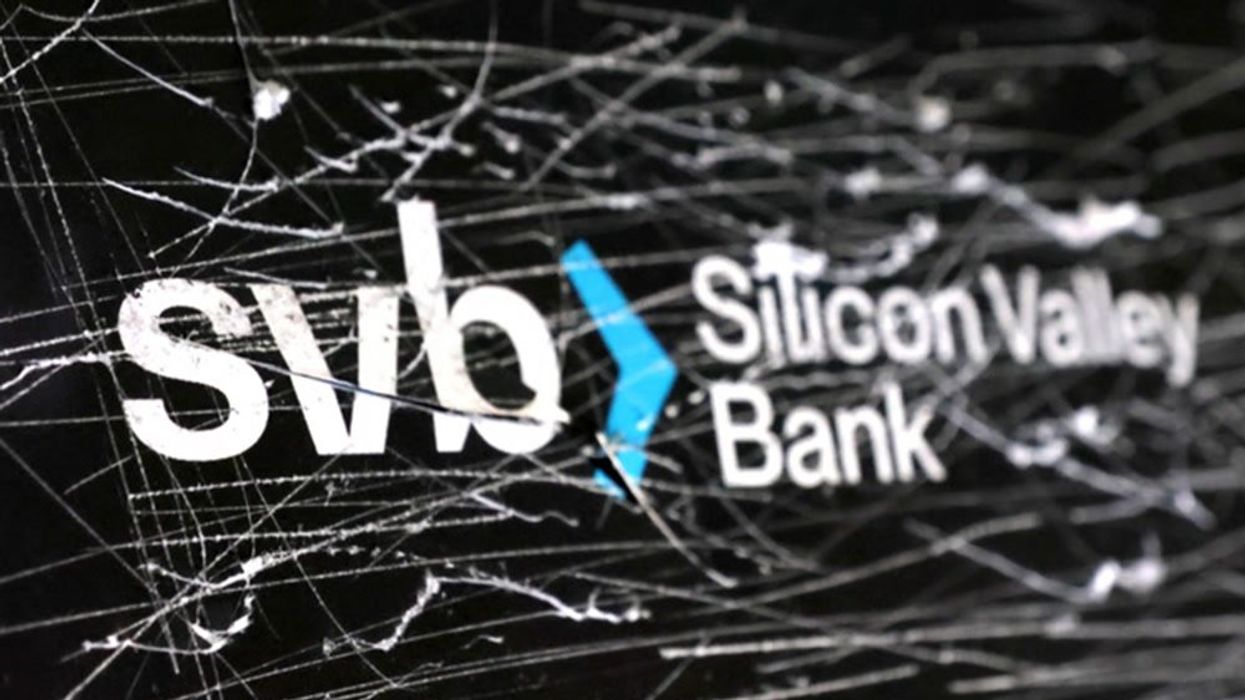Liam O'Dell
Mar 13, 2023
UK arm of Silicon Valley Bank sold to HSBC for £1
PA
As if the furore over Gary Lineker and its new immigration policy wasn’t enough for the government to deal with, ministers had to scramble over the weekend to save the UK arm of Silicon Valley Bank to prevent a banking crisis – with a joint statement with the Bank of England issued on Monday confirming it had been sold to HSBC.
Sign up to our free Indy100 weekly newsletter
But what exactly is Silicon Valley Bank, and why has its US collapse worried companies and the government across the pond? Allow us to explain.
What does Silicon Valley Bank do?
We’ll leave it to Silicon Valley Bank UK (SVB UK) themselves to sum it up. They “sit right at the heart of London’s exciting technology community and work with some of the most innovative businesses in the UK and Europe”.
They help with start-up companies, and serve sectors such as the financial technology (‘fintech’) and clean technology (‘cleantech’) industries. In other words, they are a big supporter of tech companies, as the name – referring to the area of California home to many technology brands – suggests.
What happened to Silicon Valley Bank in the US?
It collapsed, to put it bluntly. The California Department of Financial Protection and Innovation (DFPI) shut it down and took it over on Friday.
The financial regulator’s order detailing the takeover rather helpfully explains what happened which led to such action being taken. On Wednesday last week, SVB revealed it had lost around $1.8 billion from selling investments and was going to ask its investors for more money through a ‘capital raise’.
This decision, which the DFPI notes took place “despite the bank being in sound financial condition” at the time, seemed to spook investors and those who deposited funds into the bank to take out $42 billion a day later, in what’s known as a ‘bank run’.
On Thursday, SVB ended the day on -$958 million, and thus the bank was later deemed insolvent.
The UK reaction
On the same day, DFPI took over SVB (sorry for the initialisms), the Bank of England announced it planned to apply to the court to place its UK subsidiary into insolvency via a ‘bank insolvency procedure’ – meaning those who deposited in the UK counterpart would be covered by the Financial Services Compensation Scheme up to £85,000 (£170,000 for joint accounts).
“SVB UK has a limited presence in the UK and no critical functions supporting the financial system,” it stressed.
Meanwhile, Jeremy Hunt, the chancellor, said in a statement on Sunday that both the UK government and the Bank of England “understand the level of concern that this raises for customers” and how it “may impact on cashflow positions in the short term”, adding they are treating the issue as a “high priority”.
Mr Hunt said: “The UK has a world-leading tech sector, with a dynamic start-up and scale-up ecosystem. The government recognise that, given the importance of Silicon Valley Bank to its customers, its failure could have a significant impact on the liquidity of the tech ecosystem.
“The government is working at pace on a solution to avoid or minimise damage to some of our most promising companies in the UK and we will bring forward immediate plans to ensure the short-term operational and cashflow needs of Silicon Valley Bank UK customers are able to be met.”
The Independent reported on Sunday that more than 200 companies in the UK are at “serious risk” following SVB UK’s collapse.
The “solution” came a day later when it was announced on Monday that HSBC had bought SVB UK for just £1, with group CEO Noel Quinn saying it makes “excellent strategic sense” for the business operations in the UK.
“It strengthens our commercial banking franchise and enhances our ability to serve innovative and fast-growing firms, including in the technology and life-science sectors, in the UK and internationally,” he said.
Elsewhere, the Treasury confirmed will be able to access banking services as normal today, deposits have been protected, and that no taxpayer money was involved in the sale of SVB UK to a private purchaser.
Mr Hunt said: “The UK’s tech sector is genuinely world-leading and of huge importance to the British economy, supporting hundreds of thousands of jobs. I said yesterday that we would look after our tech sector, and we have worked urgently to deliver on that promise and find a solution that will provide SVB UK’s customers with confidence.
“Today the government and the Bank of England have facilitated a private sale of Silicon Valley Bank UK; this ensures customer deposits are protected and can bank as normal, with no taxpayer support. I am pleased we have reached a resolution in such short order.”
OK, so I’m not a tech entrepreneur – what does all of this mean for me?
Well, you should still be paying attention.
Senior finance lecturer Louise Cooper told Good Morning Britainon Monday: “When a bank fails, other customers of other banks start to question, ‘is my bank safe as well?’ So you start to get customers taking their money out of banks, bank runs, all kinds of liquidity problems.
“Essentially what markets are saying: two banks going bust [SVB UK and New York’s Signature Bank], the implication is that interest rates have been raised too quickly, there could be a lot of damage done to the underlying economy.
“What markets are saying is both the Federal Reserve in the States – and also, central banks all over the world, including the Bank of England – may not raise rates as highly as previously anticipated.”
Have your say in our news democracy. Click the upvote icon at the top of the page to help raise this article through the indy100 rankings.
Top 100
The Conversation (0)














